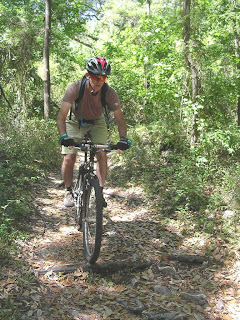OK, it's not that simple, but going to a bike shop will ensure you're heading in the right direction.
Those big-box retailers and sports equipment stores are terrible places to buy bicycles because...
- Their bikes tend to be of poor quality
- Their staff tend to know little or nothing about cycling
- They don't and can't provide service for mechanical issues (and there will be mechanical issues)
- They have limited selections for both sizes and types of bicycles
Some people complain that bicycle shops are snobby. Some are. If you have a friend who bikes, ask him or her which shops are likely to be friendlier to new riders. If you don't have such a friend, be prepared just in case you get that snotty salesperson who insists you need a $2,500 racing bike, or laughs when you tell him you just want to ride around the neighborhood or to the grocery store. Ask him (and it will usually be a "him" if this happens) if he could suggest another shop that might be interested in your business. He may actually do that! Some shops really do cater mostly to experienced enthusiasts, and will be more or less happy to make such a suggestion.
Before you walk in the door, figure out what you might want to do with the bike. Will it be primarily for transportation? For fitness? For unpaved trails in the woods? For riding across the country carrying your own camping gear? It may be one or all of those, but don't expect that one bike can do everything you might want to do; that's why many cyclists have more than one bike. A good bike shop salesperson will ask you right up front what you want to do with the bike.
I always recommend that people ride a wide range of prices, from the $250 entry level to the $1,200 high-quality. That way you get a better understanding of what more money gets you with a bike.
(Above that thousand-dollar range you probably won't notice any difference between bikes except for (maybe) weight. Kind-of like the way I couldn't tell you the difference between a $20 bottle of wine and a $200 bottle.)
When budgeting for a bike, remember you're going to need quite a few necessities that aren't included, such as a helmet, a water bottle and cage, a pump (a floor pump for home and/or a frame pump that goes on the bike), a good lock, and a small tool kit. Definitely get a floor pump so you don't have to rely on putting your bike in the back of the car to take it to the gas station where you'll pay 25 cents to use a pump likely to over-inflate and burst your tube. That'll keep you off the bike better than anything.
Are you planning to use your bike for trips to the store or to work? Then you'll need a rear carrier rack (like this) and panniers (like these). Front and rear lights are an absolute necessity (and legally required) if you're going to ride in the dark.


No comments:
Post a Comment